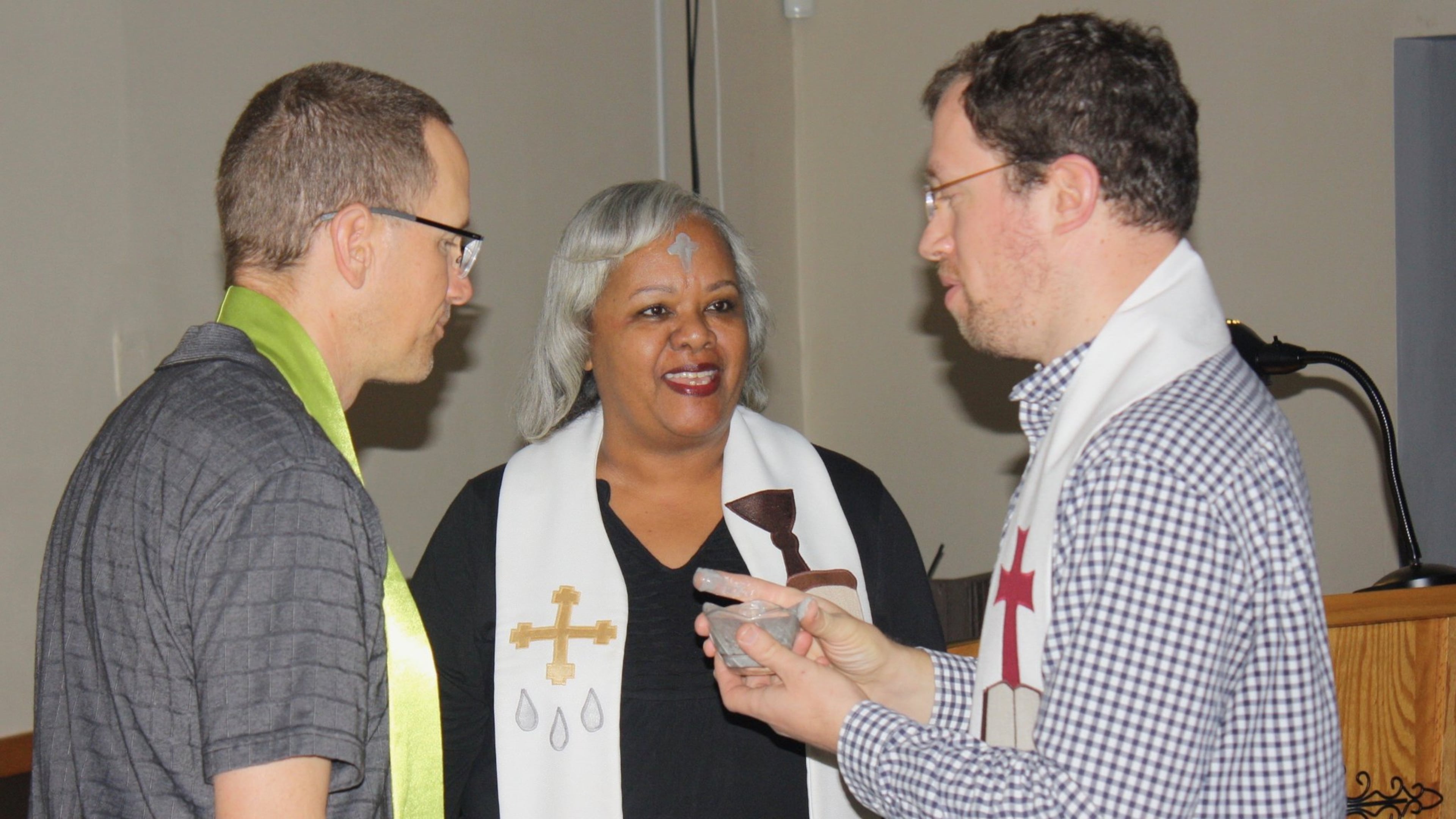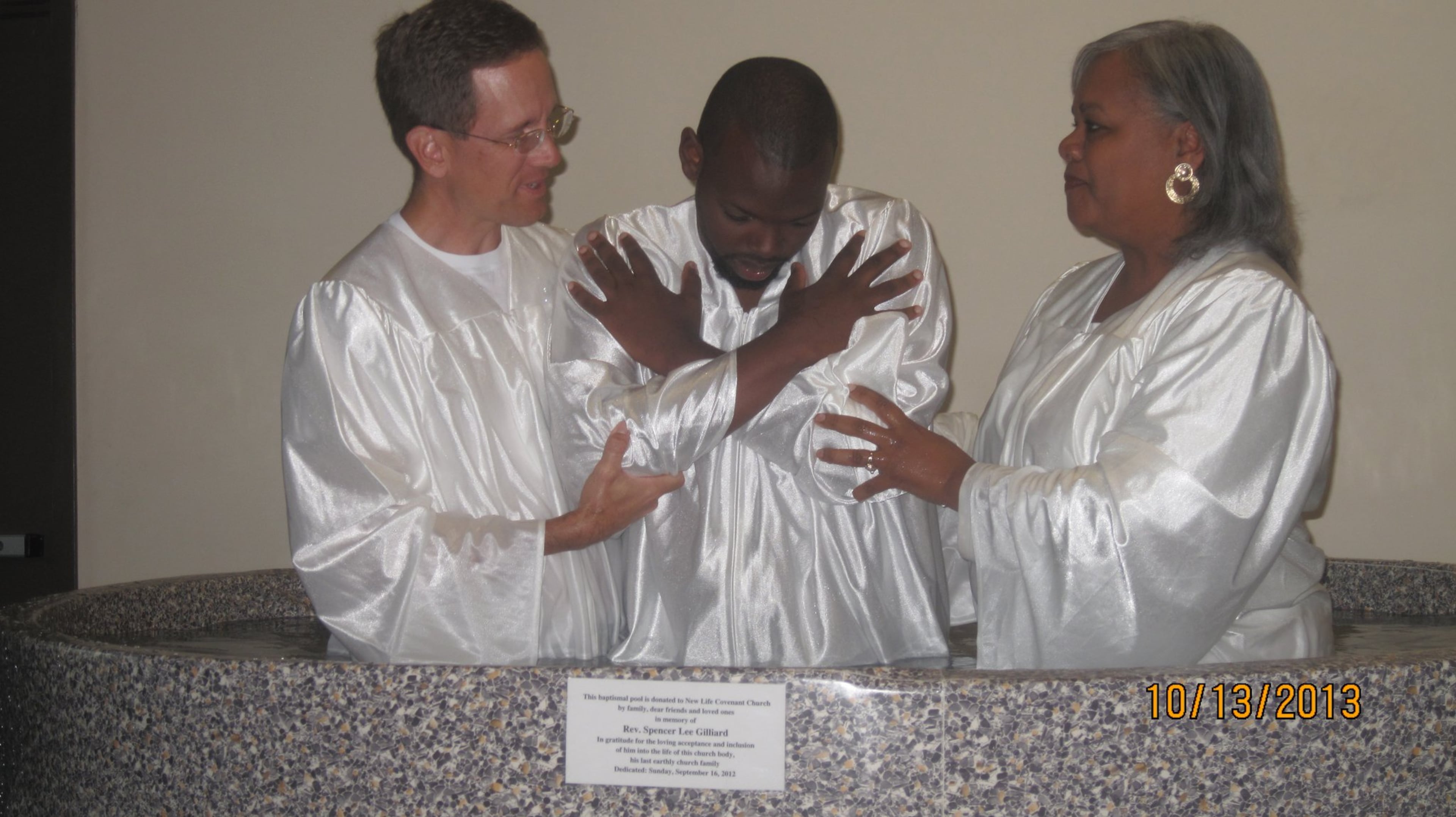Pastors — one white, one black — take on hard questions of race

In a small prayer room at New Life Covenant Church, co-pastors Tim Rodgers and Catherine Gilliard talk about the cost of laying bare one’s heart when it comes to conversations about race, gender, gentrification and justice.
Rodgers, a white father of two, feared being misunderstood and judged. He also feared being rejected.
“I’m a peacemaker so I don’t like conflict,” he explained.
And Gilliard, an African-American mother of three, was afraid of not being heard because black women rarely are. She feared, too, that her life experiences would be discounted and, like Rodgers, that she’d be misunderstood.
But facing those fears, they say, is the only way to get past those things that separate us so that we can live out the words expressed by the Apostle Paul in Ephesians 2:15: “Having abolished in his flesh the enmity, even the law of commandments contained in ordinances; for to make in himself of twain one new man, so making peace.”
As co-pastors of a 60-member church that is 60 percent African-American and 40 percent white, that is as diverse financially as it is educationally, Rodgers and Gilliard found themselves in a position to help heal the racial divide plaguing the English avenue community and our nation and decided to build on it.
That isn’t to say they don’t worry about what will become of New Life Covenant in their pursuit of healing. They do. It’s just that they believe it’s part of their calling to help move the church beyond the superficial – pretending to be unified in Christ on Sunday – and truly living in peace with each other every day.
New Life was founded in 1993 by the Rev. Robert Owens on the grounds of a torn-down drug house. As the church moved a block away to its current location in 1999, Rodgers was just finishing seminary at Gordon Conwell in Boston, and his wife Andrea was considering a job offer at the Centers for Disease Control and Prevention. They were praying about their next move when one Sunday Owens walked into their church, Trinity Covenant in Manchester, Conn., and shared with them his vision for New Life Covenant.
The next day, Owens and Rodgers spent the day together in Connecticut discussing more about New Life and the hope of God’s transforming power in the English Avenue community amid the drugs, poverty and prostitution weighing it down.
“It was exactly where my heart was,” Rodgers said. “Within six months, my wife accepted a job in Atlanta and I came down to work under him.”
That was in 1999. Three years later, when Owens stepped down to become Associate Superintendent of the Southeast Conference of the Evangelical Covenant Church, Rodgers succeeded him.
By then New Life had grown to about 75 members and was meeting in an abandoned warehouse it renovated in 1999. English Avenue was in the beginnings of gentrification.
In 2008, Rodgers met Gilliard at a pastors retreat and invited her to come check out New Life.
He wanted some fresh eyes to look at the life of the congregation and believed Gilliard could help move it further.

“A month later, I came in to observe and he asked me to offer input,” Gilliard said.
Rodgers, she said, was managing like Moses, meeting with people one-on-one. Gilliard suggested a team approach and reaching outside the church walls to understand the people who lived in the surrounding community so they could help members better navigate the racial, economic and cultural issues impacting them from a theological lens.
That meant seeing the humanity of all people.
To help facilitate that, Gilliard, who was named co-pastor in 2013, and Rodgers began what they call Ephesian 2:15 discussions, quarterly meetings in which church members and community residents are encouraged to talk about the dividing walls that need dismantling in their lives so that they become one body in Christ and thus break down the enmities and prejudices that separate us.
“We’re supposed to be sanctified people who are being transformed every day to become more like Christ,” she said.
More often than not that transformation comes at a price and demands a look back at our racial history.
“This isn’t a conversation you can enter in the middle,” Gilliard said. “You have to start at the beginning, understanding how we got to this place and then lament where we are before you can get to reconciliation.”
That conversation started with Rodgers and Gilliard themselves. And a host of questions.
“What are we really trying to do?”
“Is this what we believe God is saying the church should be?”

They believe that it is but have discovered it’s not fostering numerical growth. Discussions about race and women in leadership have caused some members to leave.
But sensing a call to navigate what a faith community looks like when we see each other the way God sees us, Rodgers and Gilliard are persevering.
“It’s what God calls us to,” Rodgers said. “You can’t read the new testament without discerning the need to pursue justice and reconciliation.”
And asking yourself, Gilliard said “do you love me enough to sit in the tension of this moment, to lament with those who are in pain?”
It’s a good question for such a time as this.


